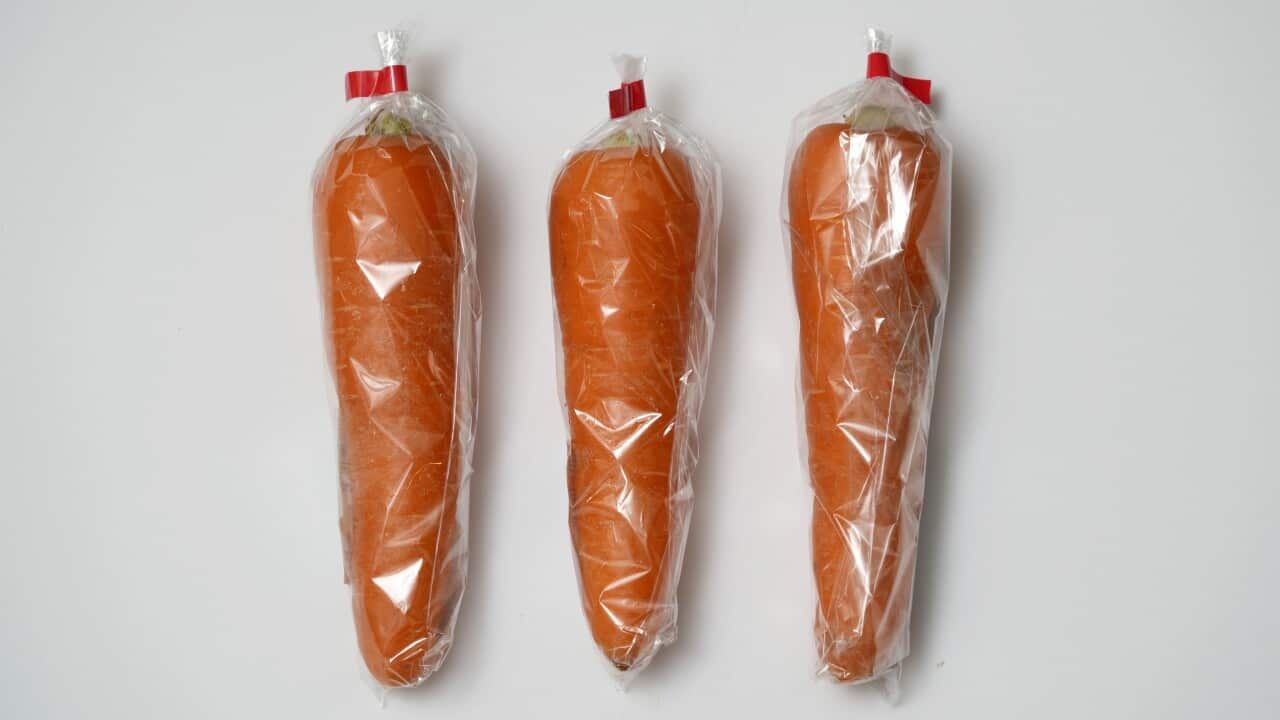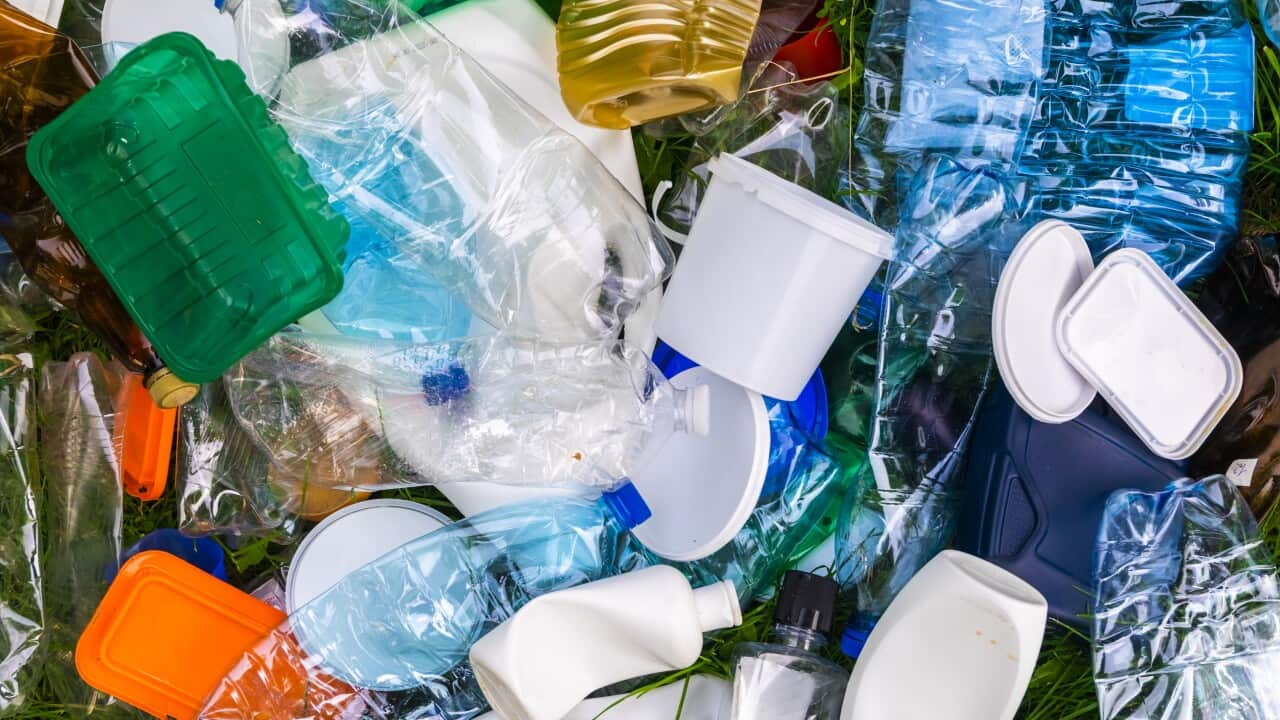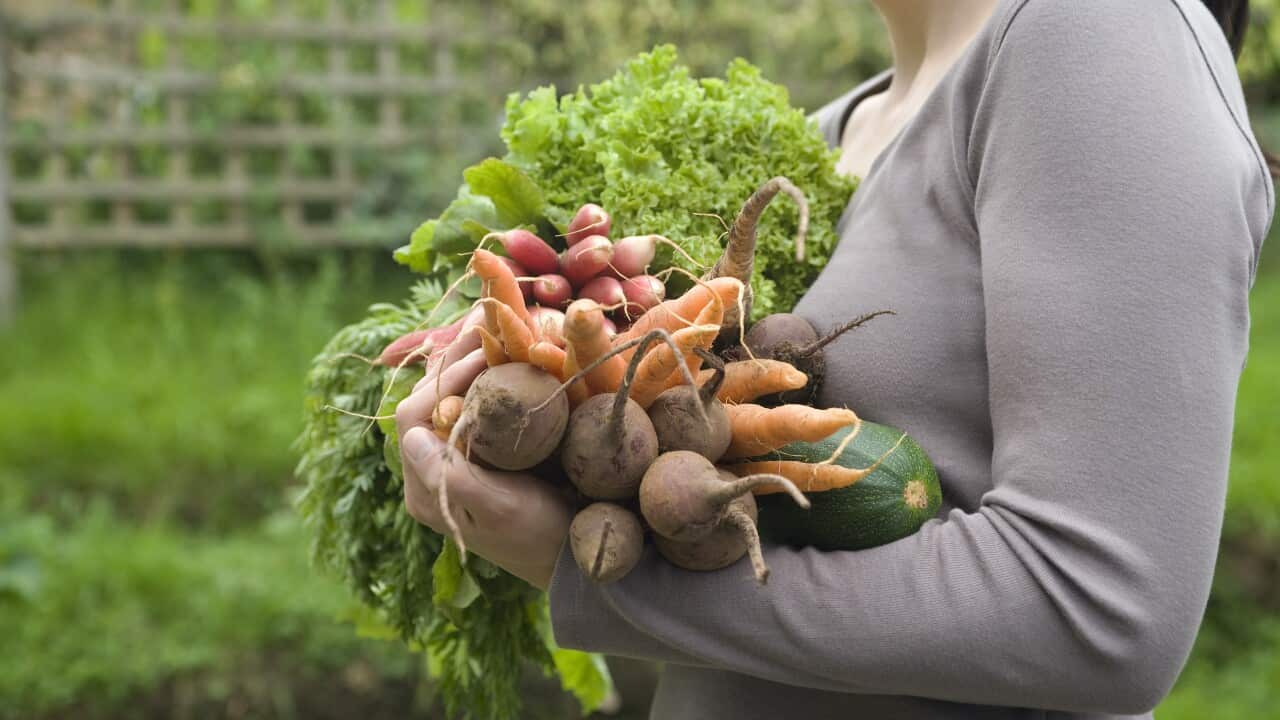Key Points
- Supermarkets have been accused of stalling on reducing plastic use, a new report claims.
- Aldi was making the most progress, the authors said.
Supermarkets have shown a lack of urgency and transparency in their efforts to reduce the amount of plastic they use, which has dire environmental consequences, a new report says.
A major problem at Australian retailers is that fresh produce individually wrapped in plastic is sold cheaper than in bulk.
The best performer was Aldi, which achieved a 20 per cent reduction score.
Coles finished second with 15 per cent, followed by the biggest chain, Woolworths, on 10 per cent. Metcash, the parent company of IGA and Foodland stores, which are independently owned, only scored 3 per cent.
The percentage scores were calculated by analysing plastic reduction, recycling and reusables. Transparency, as well as policy, planning and governance were also factored in.
The low scores show supermarkets have far to go to reduce the amount of plastic they use, according to environmental organisations Australian Marine Conservation Society (AMCS) and the Boomerang Alliance, who co-authored the report.
Even the supermarkets that had reduced plastic use had mostly done it through reducing the overall weight of packaging, known as ‘lightweighting’, rather than removing plastic packaging from products.
A Woolworths spokesperson said the report was report was not a reliable reflection of packaging sustainability at Woolworths.
The spokesperson said Woolworths has consistently "led the grocery sector" in changes to remove what used to be everyday single-use plastic items, such as plastic shopping bags and straws.
“Our data speaks for itself - we’ve removed more than 1.4 million kilograms of virgin plastic from our range since 2018, and across all the packaging we can control there is an average recycled content of 49 per cent."
"The majority of our fruit and veg range is sold loose, however we do sell some packaged items to extend shelf life or offer produce in bulk.
"In many cases, loose produce will be cheaper than its packaged alternative, however, when it comes to bulk packs of fruit or veg, by selling a large volume in a single product we can often provide customers with a lower price per piece."
Sustainability director at ALDI Australia, Daniel Baker, said: "We understand the important role we play in reducing our use of plastic and introducing more sustainable packaging within our own supply chains at a local and business level."
ALDI Australia endorses the Global Plastics Treaty to End Plastic Pollution, which was developed by the UN and signed by 175 countries in 2022 and a founding member of the ANZPAC Plastics Pact, which aims for 100 per cent of plastic packaging to be resuable, recyclable or compostable by 2025.
"These actions reflect ALDI’s dedication to driving industry innovation to minimise plastics across the whole supply chain," Baker said.
Most supermarkets were hesitant to publicly release data on their packaging footprint, the report said.
Three of the chains scored 10 per cent or less in transparency though Aldi was an outlier with 33 per cent.

Some supermarkets are charging more for loose produce as opposed to produce wrapped in plastic Source: AAP / Richard Levine/Sipa USA
"We support the industry to achieve its target of 100 per cent reusable, recyclable or compostable packaging by 2025 and currently 83.8 per cent of Coles Own Brand packaging is recyclable.
"We continue to make improvements to our packaging such as removing the plastic opening from some Own Brand tissues which eliminated 13 tonnes of plastic and launching the KOi refillable Hand Wash which led to a 14-tonne reduction in single-use packaging.
The company said it reduced the plastic in some Own Brand oils which led to a 35-tonne reduction in plastic and continued to remove problematic packaging such as polystyrene bread tags, steel clips and PVC film.
It also noted it replaced soft plastic bags with reusable paper bags made from 100 per cent recycled content that can be recycled kerbside at the end of life, which removed 230 million plastic bags from circulation in one year.
A Metcash spokesperson said the company will be reviewing the report’s recommendations and "will look to make improvements in this area to the extent possible".
"We confirm that we are working closely with the independent retail stores in our network on phasing out problematic plastic packaging material and providing alternative solutions to single-use plastic materials."
The company said it has supplier packaging guidelines in place, and will look to make these publicly available as recommended in the report.
"While we recognise there are further improvements to make, we are proud of the progress made in this area, particularly in the last 12 months which has included reducing plastic packaging by 60 per cent across our private label Community Co range of organic, grass-fed and free-range case-ready meats through the introduction of a new packaging format."
The Unwrapped plastics audit report used data provided by supermarkets, public reports and volunteer shopper surveys to analyse their 2022 performance in the five categories.
Australia has a target to recover 70 per cent of plastic packaging by 2025, but recovery rates have stagnated at just 18 per cent, a situation likely made worse by the.
Supermarkets were unable to show evidence of significant progress in resource recovery and increasing the use of recycled plastic content, the authors said.
Aldi submitted the most evidence of progress in replacing problematic plastic, using recycled cardboard in some appliances, and flexible polyvinyl chloride (PVC) with fabric offcuts destined for waste on some homewares.
"Concerningly, our in-store surveys showed that plastic-wrapped produce is frequently being sold cheaper than loose produce, providing a perverse encouragement for shoppers to use even more plastic. It’s madness,” Boomerang Alliance director Jeff Angel said.
"The findings also show that reuse and refill systems are a huge missed opportunity. Australians have shown an incredible willingness to embrace reusable bags, cups and bottles, and supermarkets can help them go further.
The audit identified actions supermarkets can take, including: ensuring loose fresh produce is cost-competitive with plastic-wrapped produce, and eliminating plastic fruit stickers, produce bags and pre-packaged straws and cutlery.
An estimated 11 million tonnes of , and that figure is expected to triple by 2040 at current trajectories.














